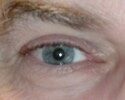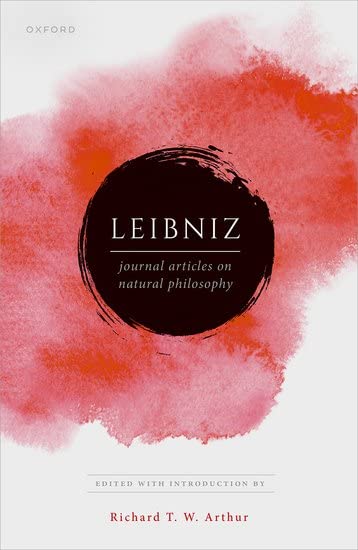g e n e r a l c o u r s e m a t e r i a l s
Advice handouts here on the writing of philosophy papers.
L e i b n i z’ s p h i l o s o p h y o f t h e i n f i n i t e
phil 753. Fall Term 2019. Graduate Seminar in history of philosophy: a study of Leibniz’s philosophy of the infinite. After studying the views of Aristotle, Galileo, Descartes, Pascal and Spinoza, and some of Leibniz’s remarks on them, we will proceed to dig deeper, contrasting his concept of the actual infinite with Cantor’s, and exploring his novel theory of change, his controversial account of contingency, and his subtle thoughts on infinitesimals.
p h i l o s o p h y o f t h e e n l i g h t e n m e n t
Phil 3NN3. Fall Term 2017. 3rd year course on philosophers of the Enlightenment, concentrating on the thinkers whose revolutionary new ideas ushered in the French and American revolutions and defined the “modernism” against which postmodernism defines itself.
L e i b n i z a n d t h e l a b y r i n t h
phil 753. Fall Term 2017. Graduate Seminar in history of philosophy: an overview of Leibniz’s philosophy, followed by a detailed examination of his theory of substance. I provide a fresh interpretation of some perplexing issues by taking seriously Leibniz’s claims that the adoption of monads is necessary in order to avoid the paradoxes of the composition of the continuum.
i n t r o d u c t i o n t o l o g i c
Phil 2B03. Winter Term 2017. The introductory logic course; in which you will learn to recognize the logical forms of arguments and how to express them symbolically, and then apply the various techniques and proofs of propositional and predicate logic to determine their validity. You will also learn certain less formal methods for analyzing natural arguments, including the kind of sustained theoretical arguments you meet in your academic studies. These methods will complement the methods of symbolic logic, motivating their construction and use.
i n t e r m e d i a t e l o g i c
Phil 4XX3 / Phil 6XX3. Winter Term 2017. Although this course presupposes a high level of competence in logic, it develops into something very different from Phil 2B03. Our study of some of foundations of logic — particularly the theory of recursive functions, Gödel’s Theorem and Skolem’s Paradox — leads into an exploration of the theme of logic “curling about itself” (Nietzsche). This theme is imaginatively and artistically explored in Douglas Hofstadter’s Gödel, Escher, Bach, which we will study in addition to Bell, DeVidi and Solomon’s introduction to classical and alternative logics, Logical Options.
t h e p l u r a l i t y o f f o r m s: Scaliger, Sennert and Leibniz
Phil 753. Fall Term 2016. Graduate Seminar, Topics in Modern Philosophy. In this course we will be approaching modern philosophy from an unusual angle, by exploring late Renaissance natural philosophy and its influence on Leibniz. The metaphysical theories of the late Scholastic J.C. Scaliger had a decisive influence on the transitional figure Daniel Sennert, whose chymical theories and practices were adopted and transformed by Robert Boyle into the emerging science of chemistry, and underpinned Leibniz’s (only now appreciated) contributions to the life sciences.
p h i l o s o p h y o f s c i e n c e
Phil 3D03 (+ Origins 3A03). Winter Term 2016. 3rd year philosophy course on phil of sci, with last three weeks in combination with Origins of Spacetime students, on the philosophy of space and time. This course introduces some key issues in the philosophy of science. In the first part of the course, some of the classic issues: the role of experience, observation and experiment; scientific method: induction, logical empiricism, hypothetico-deductivism and falsificationism; Kuhnian paradigms, incommensurability, research programmes; the status of scientific laws; and realism vs. antirealism. In the last quarter of the course we engage specific issues in the metaphysics of physics, namely in the philosophy of space, time and spacetime.
t o p i c s i n t h e p h i l o s o p h y o f s c i e n c e: space and time
Phil 771. Winter Term 2016. Graduate Seminar. In this course we examine philosophical issues concerning space and time, with an eye to implications for modern physics. Beginning with a study of the classic exchange between Samuel Clarke and Gottfried Leibniz, we will proceed to the look at the relativity of motion in Einstein’s relativity theories (no prior knowledge of physics is presumed). In the latter part of the course we will turn to issues in the philosophy of time: the status of the present, whether the passage of time is an illusion, what constitutes the direction of time, whether time travel into the past is logically possible, and many others.
i n f i n i t y a n d a n t i n o m y
phil 762. Winter Term 2014. Graduate Seminar in selected Topics in Metaphysics. This course is centred on Graham Priest’s The Limits of Thought, a wide-ranging and provocative study of the possibility of such limitsof thought, as proposed by in the philosophy of most of the important philosophers in history, including the Ancients, Kant, Hegel, Russell, Wittgenstein, Heidegger, among many others. Priest follows Hegel in arguing for the intelligibility of true contradictions, which set bounds to thought (closure) and also inevitably break them (transcendence). We examine Leibniz’s interpretation of the actual ifinite as a potential vehicale for escaping the antinomies.
D e u l e u z e, S p i n o z a a n d L e i b n i z
Phil 731. Fall Term 2012. With Barry Allen. Graduate Seminar on selected Special Studies in Philosophy: Deleuze, Spinoza and Leibniz.
o r i g i n s o f s p a c e t i m e
Origins 3A03. Fall Term 2012. 3rd year course: co-instructor: Ralph Pudritz. The aim of this course is to survey some of the most important ideas, theories, and experiments that mark the development of our understanding the origin of the cosmos and the nature of spacetime that defines it. Our lectures follow a historical treatment of some of the most important breakthroughs. We also use an interdisciplinary approach by combining history of science, mathematics, astronomy and astrophysics, and physics (such as particle physics). There will be some technical material involving physics and astronomy problems.
p h i l o s o p h y o f l a n g u a g e
Phil 3E03/CS3Y03. Winter Term 2011. 3rd year course. This course offers a lively introduction to some of the main philosophical issues concerning language. We will motivate the discussion by looking at attempts in the early modern period to devise a perfect language, the later discovery of the Indo-European nucleus of many of the world’s languages, the invention of artificial languages, including modern logic and computer languages, the Whorf-Sapir hypothesis, and Chomskian linguistics.
e a r l y m o d e r n p h i l o s o p h y
phil 4A03 / 6A03. Fall Term 2013. Leibniz and English philosophy. A study of Leibniz’s engagement with English philosophers, from his early enthusiasm for Hobbes, through his engagement with Locke to his controversy with Newton and Clarke. After acquainting ourselves with Hobbes’s first philosophy and Leibniz’s main ideas, we will turn to a detailed study of the views on language, knowledge, the mind-body relation, free will and determinism, substance and the nature of space and time contained in these exchanges, comparing Leibniz’s views with those of Locke, Newton and Clarke.
Feb 04, 2022 at 3:42 PM
Books by RTWA
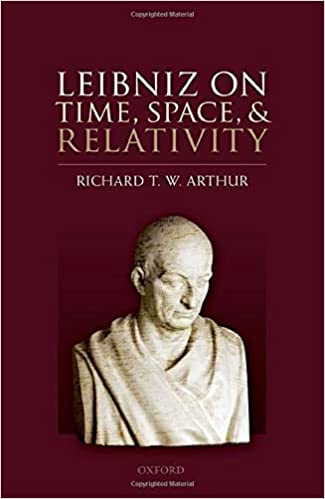
Leibniz on Time, Space, and Relativity
December 16, 2021
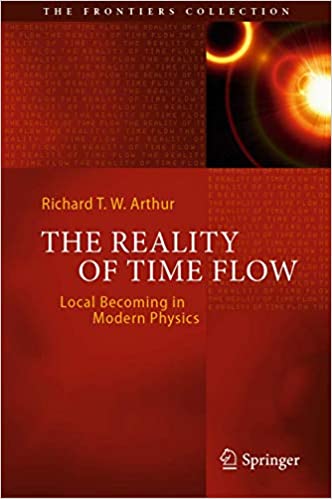
The Reality of Time Flow: Local Becoming in Modern Physics November 30, 2021
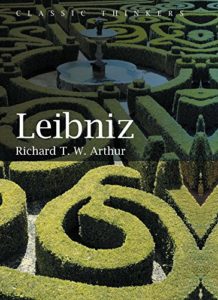
Leibniz
Sept. 9 2014
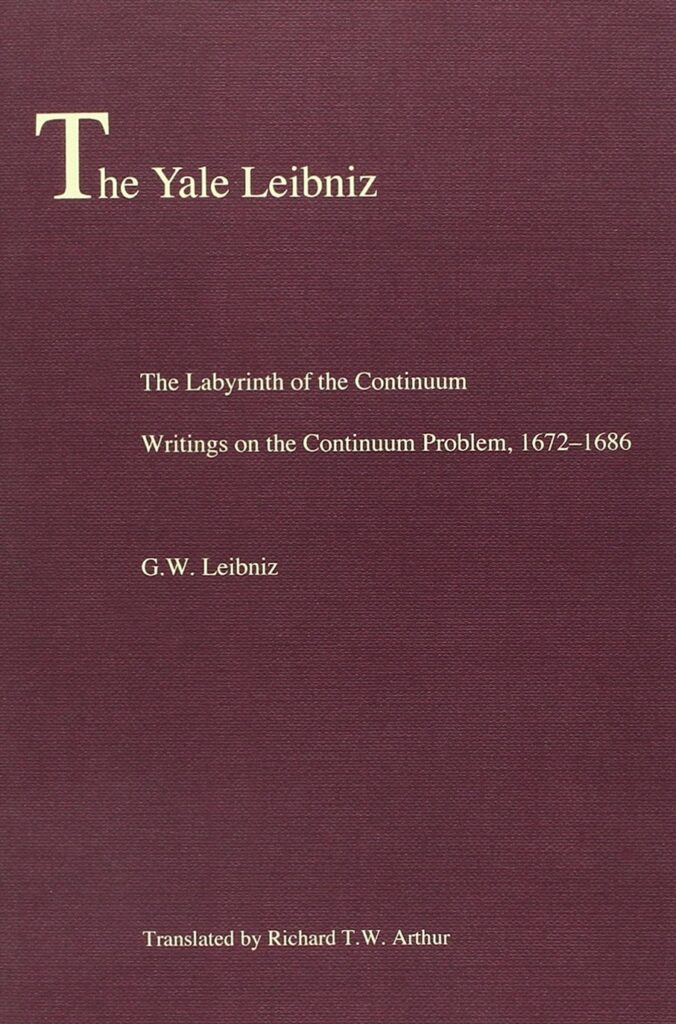
The Labyrinth of the Continuum
Sept. 3 2013
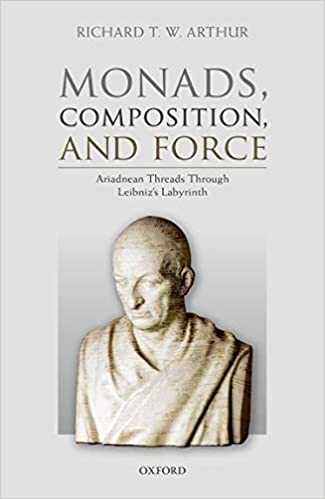
Monads, Composition, and Force
Nov. 14 2018
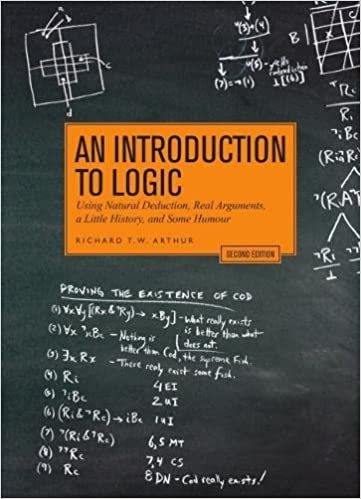
An Introduction to Logic
Nov. 30 2016
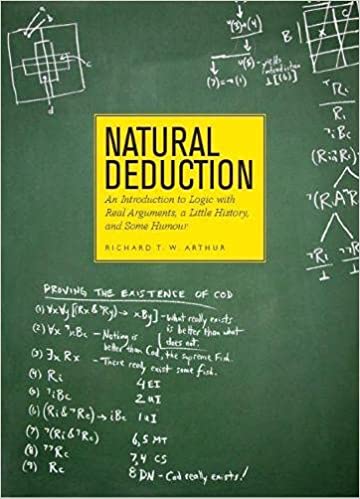
Natural Deduction
May 25th, 2011
